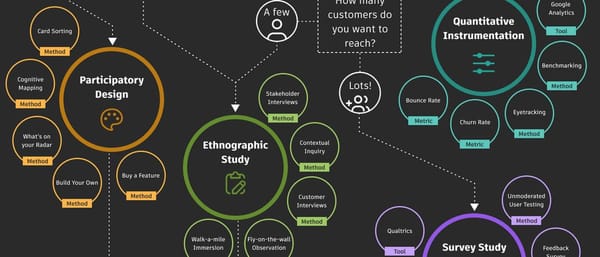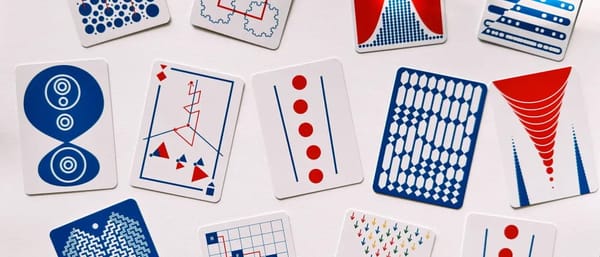№ 4 | Contrasts and Meaningful Distinctions, Engagement, Explaining Ontology and Epistemology, Patterns in Choice-Based Games, and Text to Image Generation
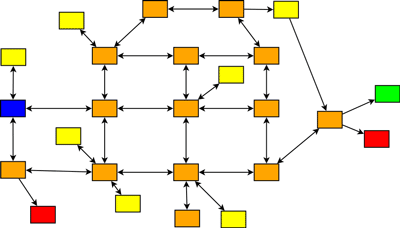
Contrasts and meaningful distinctions
🤩 A co-worker shared this brilliant list of critical distinctions, gathered by Frank Chimero over the past few years. [No direct source, as I believe this was from a private newsletter?]
Here's the snippet:
The pandemic has given me a cynical distance to professional language—work words slough meaning in the dissonance of a world pretending it is business as usual in truly exceptional times of suffering. As an exercise, I started a list of meaningful distinctions, wondering how I could find a kernel of interest, truth, and personal resonance in the catch-all, vague, lazy words I despised. I am sharing my list after 18 months, because it has become a pocket-sized ethos, a dialectical approach where the separation of ideas makes each more coherent. It is a reminder that no matter how crudely we may label things, the actuality of a red-orange face, the peach of the sky, the whichever wine blue of the sea are all still there, waiting to be summoned again with the right word.
Meaningful distinctions:
* Profit vs benefit
* Simplicity vs clarity
* Success vs progress
* Convenience vs comfort
* Fun vs satisfaction
* Thoughts vs thinking
* Information vs knowledge
* Choices vs decisions
* Scale vs resonance
* Achievement vs influence
* Descriptions vs evaluations
* Expansion vs growth
* Consumption vs consideration
* Control vs initiative
* Happiness vs fulfilment
This also reminds me… I’ve been sitting forever on a post about using “contrasts” (similar to these) to create clarity. It’s chock full of examples whereby merely presenting two words/concepts/ideas next to each other makes it easier to understand and discuss critical, nuanced differences (and also why some people might avoid contrasts, for this very reasons—as it removes the “cover” of ambiguity).
Scratching at the word… “engagement”
Companies everywhere talk about measuring engagement. I love how this article probes deeper into what this might actually mean: “The dangers of ‘Engagement’ as an untethered KPI” by Melinda Jacobs.
“How would you explain…
…Ontology and Epistemology to a child?” 😳 Fun to see how various folks responded to this challenge.
“Standard *patterns* in choice-based games”
I'm not sure if you geek out on this stuff like I do, but… wow! This article by Sam Kabo Ashwell has been described as “an essential article about structure in branching narratives.” If you want to gown deeper down the rabbit hole, and learn more about the writing process for interactive fiction, here's the Reddit thread where I came across this post.
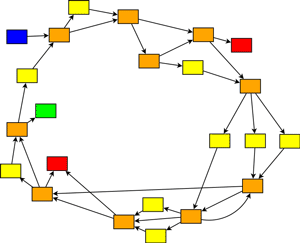


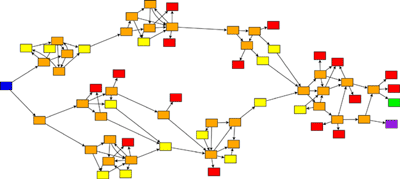
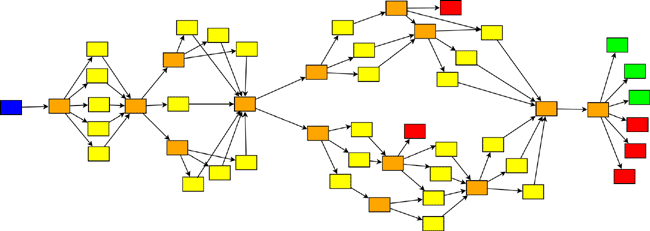
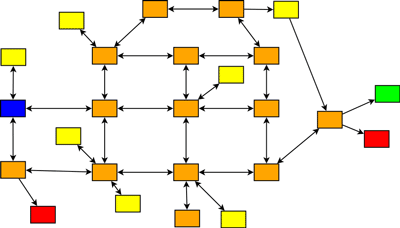
And finally…
Text to image generation
Stable Diffusion, the newest AI image generator, has been making the news this week. Here's a Figma plugin that uses “prompts + simple shapes to design ideas.” 😮


